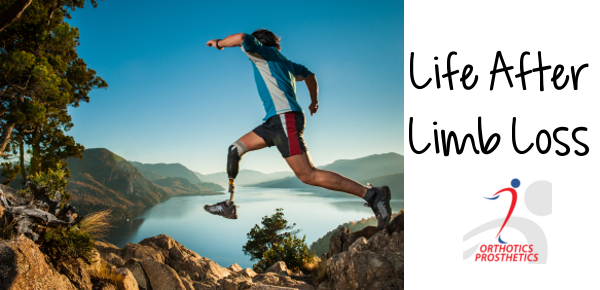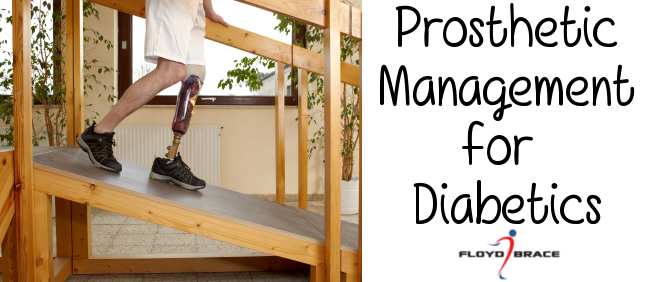Many folks are familiar with prosthetist and orthoptist, but what exactly does a pedorthist do? Floyd Brace has your answer! But first, let’s review pedorthics:
Choose A Location
-
N. Charleston
9231 Medical Plaza Dr Ste D
Charleston, SC 29406-9101
Phone: 843-722-8827
Fax: 843-723-7099
-
Charleston
648 St Andrews Blvd
Charleston, SC 29407
Phone: 843-573-9430
-
Walterboro
138 Bells Hwy
Walterboro, SC 29488
Phone: 843-782-3638
-
Georgetown
407 Church St
Georgetown, SC 29440
Phone: 843-546-8555
-
Murrells Inlet
3944 US-17
Murrells Inlet, SC 29576
Phone: 843-299-0566
-
Administration Office
9231 Medical Plaza Drive, Suite D
North Charleston, SD 29406
Phone: (843) 614-6400
Fax: (843) 873-7387
Best Foods for Diabetics
Properly managing your diabetes can help you prevent complications with diabetes, such as amputation, and can also help you live a normal life. Aside from regular visits with your doctor and regular exercise, having the proper diet as a diabetic is extremely important. But how do you know which foods to avoid and which foods you should be eating?
Summertime Skin Care
August is notorious for being one of the hottest months of the year and South Carolina is no exception. It’s tough to stay cool throughout these dog days of summer, especially when you have a prosthetic limb that requires extra care and attention. However, it is important to stay cool and manage the sweat around your residual limb to protect your sensitive skin from any discomfort and infections.
Prevent Infections
Sweating in the summer heat is inevitable, but sweat in the prosthesis socket combined with your sensitive skin can lead to bacterial infections. Wash your prosthetic socket with an antibacterial soap at least once a day as well as your skin to prevent infections. Also, wash your prosthetic socks and liners daily and be sure they are completely dry before putting them back on.
Prevent Skin Breakdown
Spending lots of time outside in the summer is a great way to stay active and enjoy the beautiful weather. However, the more time you spend being active with your prosthetic device, the greater the risk for skin breakdown around the device. Having a well-fitted device, maintaining a stable weight, drinking lots of water and sticking to a healthy diet can help keep you comfortable and prevent skin breakdown.
Prevent Other Skin Issues
Summer is the season of shorts and having a prosthetic limb should not keep you from wearing your favorite shorts! If you shave, be careful with areas around the prosthetic device to prevent making ingrown hair follicles. Ingrown hairs can cause discomfort and can also get infected.
Floyd Brace hopes that you are able to enjoy the rest of your summer while avoiding any skin-related issues with your residual limb. To make sure your prosthetic limb is fitting properly or to meet with any of our practitioners, contact us today!
Preparing Children with Prosthetic Devices for the New School Year
When August rolls around each year, most kids are excited and ready for a new school year. However, kids with prosthetic or orthotic devices may have unique concerns and insecurities when it comes to going back to school. If you child is a prosthetic device user, Floyd Brace wants to help you prepare your child to enter the new school year confidently and comfortably.
- Introduce your child to their new teacher before the first day of school. This way, both your child and your child’s teacher can get to know each other is a more relaxed setting. Inform the teacher of any difficulties that may arise and how to handle them. When the teacher is comfortable with the prosthetic device, the other students are more likely to follow suit.
- Ensure that the classrooms, bathrooms, and playground equipment at your child’s school are safe and accessible for students with a prosthetic devices.
- Prepare your child for questions and curiosity from other students about the prosthetic. Empower them with confidence to appropriately address questions and curiosity from others.
- If teasing does occur, encourage your child to inform their teacher or a trusted adult. Let them know it is not acceptable and they do not have to endure it. Encourage them to stay calm and that getting upset may only make the situation worse.
- Remind your child that everyone is different in some way. We are all made differently and have unique life circumstances that make us special. Think positively, act positively and positive things will happen!
Floyd Brace hopes these tips help your child have a smooth transition into the new school year. We are proud to provide both adults and children alike with custom orthotic and prosthetic devices. Contact Floyd Brace today to learn more!
Traveling with a Prosthetic Device
The summer months are a time for many folks to take vacations, retreats and getaways. To ensure a fun and safe vacation experience, it is important for everyone to properly prepare for their trip before they take off. However, those with prosthetic devices need to take extra steps to prepare for a safe and fun summer vacation. Today, Floyd Brace provides you with tips on traveling safely and comfortably with your prosthetic device.
Research Hotels – When making travel plans, research a variety of hotels to learn about any accommodations they may have for prosthetic users. You could also use a travel agent who specializes in the area you are traveling to as they may have more information on hotels with special accommodations.
Notify Travel Services – If you are traveling by air, call your airline to let them know you will be traveling with a prosthetic device. They may then help you acquire the proper TSA information to get through security smoothly and problem-free. If you are not traveling by air, but do plan to take a bus, train or ship, it would still be wise to call-ahead so that they can prepare any accommodations that they may offer.
Inspect your Device – Inspect your prosthetic device for minor issues or potential problems. It would be misfortunate to have any problems with your prosthetic device arise while you are on vacation and away from your prosthetist. If you have any questions or minor issues with your prosthetic device, consult your prosthetist before you take off!
Pack a Travel Kit – A travel kit for a prosthetic user could include items such as antibacterial soap, antiperspirant or skin dressings. Each of these products will help keep you clean and cool when traveling to a destination with a hot climate. Also, consider packing extra garments that you usually pair with your prosthetic device.
Floyd Brace wishes you and your family a safe summer trip! Contact us today or visit our website for all of your prosthetic and orthotic needs.
Life after Limb Loss

Life after limb loss is challenging, but these tips can help you learn to enjoy life after limb loss.
If you or a loved one have recently lost a limb, you may now be facing many new challenges and experiences, both good and bad. Although limb loss is a physical disability, it is a major mental and emotional adjustment as well. Through surviving, recovering and living as an amputee, life will present you with many new obstacles and situations. Floyd Brace is here to help!
In an article once published by CNN, Dr. Roberta Cone, a psychologist specializing in dealing with limb difference and overcoming obstacles, gave some tips for situations you might encounter as an amputee:
- Whether it is you or a loved one, it is natural to feel disheartened upon first seeing the absence of a limb or your new limb as a prosthetic. Don’t feel ashamed – it will pass.
- If people stare at you, look back and smile. It is part of human nature to be curious, and they don’t necessarily mean anything by it. Most of the time, your limb is just something that they don’t fully understand.
- If you do get positive feedback, say thank you! Put any positive experiences in your self-esteem bank for later when you might be having a difficult time.
- Do not define yourself by your lost limb. If people have a negative reaction towards you, it is not personal. Again, some people are just afraid of ideas they don’t fully understand.
- There are tremendous resources available for amputees everywhere! Educate yourself as much as possible. Other than total patient care, Floyd Brace provides its patients with a variety of resources including help for caregivers, a glossary of O & P terms, a list of the best O & P websites and so much more!
Life after limb loss is challenging. By working to maintain a positive attitude when dealing with a variety of new situations, you can become comfortable strutting your stuff and live a happy life! Contact your Floyd Brace prosthetist today for more information and additional support.
Six Tips for a More Enjoyable Recovery
Life throws us curveballs we can’t always prepare for. Many people experience injury, illness or accidents that lead them to the hospital. While these events can catch us off guard, there are people trained and ready to assist when they are called upon. Floyd Brace is trained and prepared to provide you with the appropriate orthotic or prosthetic intervention when life hands you the unexpected. We hope to provide the most modern and up to date products along with trained experts to assist in the process. Surgery is common before and after receiving prosthesis. It is almost always followed by a long period of recovery that can be uncomfortable and boring. Here we would like to provide you with six ways to have a more enjoyable recovery.
- Pamper yourself with a bubble bath, facial or manicure. Your body has been under a lot of stress and deserves special treatment.
- Make a list of all cards and gifts received during your difficult time. Take time to hand-write thank you letters to everyone who has supported and helped you.
- Clean out junk drawers filled with useless items. Make piles to sell, donate or throw away. Simplifying your home will help you feel more organized and your home to appear neater.
- Collect your family’s favorite recipes and combine them into one cookbook. Have copies made and distribute them to your family members. They will appreciate having all their favorite meals in a book for themselves.
- Find NEW recipes to try on Pinterest. This website is filled with creative and fun meal ideas.
- Download a book on tape for easy listening at home or in the hospital. It can provide entertainment and allow you to rest at the same time.
Undergoing surgery can be a difficult time. We hope you have a successful experience followed with an enjoyable recovery. Floyd Brace Orthotics & Prosthetics have experts ready to assist you with your orthotic and prosthetic needs. Visit our site to read about our services and practitioners.
Prosthetic Management for Diabetics
Those who suffer from diabetes need to take extra care when it comes to preventing wounds, accidents and injuries. Although diabetes can be managed with the proper care and diet, sometimes it just isn’t enough. When despite all best efforts amputation becomes necessary, we at Floyd Brace are ready step in with the appropriate level of prosthetic care.
Those who require a prosthetic limb from complications with diabetes may have a few different requirements and maintenance procedures when it comes to caring for yourself and the prosthesis. Here are some things to keep in mind when thinking about prosthetic management for diabetics:
Timing – Slow wound healing is a hallmark of advanced diabetes, especially in the lower limb. A commonly accepted guideline is to begin the transition to a prosthesis about six weeks after surgery, barring lingering complications.
Limb components – Light weight, durability and ease of use are important attributes of prosthetic legs for diabetic patients. Because sores and infection occur frequently in neuropathic limbs, optimal socket design and cushion liners are important considerations. Flexible, dynamic sockets help prevent undue pressure over sensitive skin and nerve areas. A lightweight prosthetic foot appropriate to the amputee’s activity level will help maximize the benefit the older diabetic patient receives from a prosthetic limb.
Continuing care – Amputees with diabetes present special challenges and thus require more frequent prosthetic follow-up care than most other clients. Diabetic limbs frequently exhibit reduced perspiration and loss of skin moisture, leaving tissue prone to skin breakdown and infection. Regular inspection of the residual limb and adjoining skin surfaces is thus essential.
It is critical for amputees with diabetes to diligently examine their remaining sound limb daily, checking for sores, cuts, blisters, as well as foreign items in their shoe to keep that good leg healthy. Circulation in a sound limb can be improved by wiggling the toes for a few minutes several times a day, moving the ankle joint up and down periodically, and not crossing the legs for an extended time.
For answers to specific questions regarding orthotic/prosthetic care of patients with diabetes, please feel free to contact us today!
Good Skin Care for Diabetes
Diabetes affects many parts of the body, including the skin. One-third of people with diabetes develop a skin disorder caused by their condition at some point in their lives. Some common issues that individuals with diabetes encounter are bacterial infections, diabetic dermopathy, atherosclerosis and fungal infections. Luckily, most of these skin conditions can be easily prevented or treated with proper skin care. Check out these simple tips to keep your skin healthy:
- Keep your skin clean and dry using talcum powder. Some sensitive areas include those where skin touches skin, such as the armpits and groin.
- Avoid baths and showers in too hot of water. If you already have dry skin, don’t use bubble baths. Try moisturizing soaps like Dove and apply an oil-in-water skin cream afterwards.
- Try not to scratch dry or itchy skin, as this can open up the skin and allow infection to set in. Moisturize your skin to prevent chapping when it is cold outside.
- Increase the humidity in your home during cold, dry months.
- Check your feet every day for cracks, sores and cuts.
- Treat wounds right away. Wash minor cuts with soap and water, and then use an antibiotic cream before covering it with gauze. If you get a major cut, burn or infection, see your doctor.
- Stay hydrated by drinking lots of water to keep your skin moist and healthy.
The best thing you can do to ward off common skin problems is to manage your diabetes. You will probably need to make some lifestyle changes that include a healthy diet and regular exercise. People with high glucose levels usually have drier skin and less ability to defend against bacteria. Both of these issues increase your risk of infection. You can find more information about the causes and treatment of diabetes in our resource center. Please feel free to contact Floyd Brace with any questions or concerns!
Caring for our Best Caregivers

It’s important to be the best caregiver you can be, but it is also important to take care of yourself!
Caring about the people we love is easy, caring for someone we love can be a bit tougher, especially if we are doing it all day, every day or for months and years on end. Floyd Brace works with many caregivers who are helping our patients and understands many of the issues they face. Since we appreciate these dedicated individuals so much, we want to offer some tips to help caregivers do their job well.
Caregiver rule #1- Take care of yourself. It may be easier said than done, but it’s so important to make time for yourself and the things you enjoy. Watch out for isolation and signs of depression. Stay physically and mentally strong by taking care of yourself. If you are worn out and exhausted, who will care for you AND the loved one you help?
Caregiver rule #2- Don’t be afraid to ask for help. Seek help from other family members, friends and local agencies. You may be the main caregiver, but let others help lift your burden even if it’s just for an hour or a day.
Caregiver rule #3- Educate yourself on any conditions that are impacting the person you are caring for. Look on the internet or talk to professionals in the field. Find facts, not just feelings and opinions. Even online support can be informative and helpful!
Caregiver rule #4 – Talk to other caregivers. Have honest discussions about caregiving and swap stories. You’ll learn more and you may have experiences that can help them. Most importantly, you will learn that you’re not alone.
Caregiver rule #5 – Trust your instincts but learn to let go sometimes. It’s okay to work with agencies and professionals, but remember that you know your loved best, so trust your instincts. At the same time, accept that there are many things you can learn and be open to ideas and opinions from others.
Floyd Brace cares about our patients and their caregivers alike! You can find more tips for caregivers in our resource center or talk to an expert at Floyd Brace.








